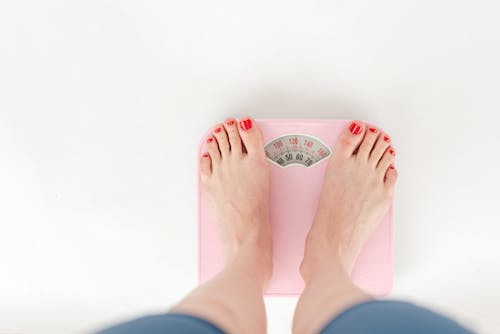- PhentermineLearn more about phentermine and how to get the most from your weight loss journey.
- ResourcesAdditional information and tools to help you make the most of your effort.
- AlternativesLearn more about the most popular weight loss medications and science-backed supplements
Can Probiotics Help You Lose Weight?
Published on December 11, 2024

Wrestling with extra weight feels like scaling a mountain in the health universe. Many folks grapple with tipping the scales, which can throw a wrench into how their bodies function. Gaining extra weight isn’t just a change in appearance; it sets the stage for scary issues like heart disease and diabetes. Lately, a swarm of researchers has zoomed in on a little powerhouse: the gut microbiome. The hot topic on everyone’s mind: do probiotics have what it takes to help you shed pounds?
Probiotics are bacteriological strains with a number of benefits. Their potential to cause weight loss in the overweight and obese has recently led to a significant escalation in research. Many studies look at the role that probiotics play in the homeostasis of body weight. Studies on gut health also focus on energy control and modulation of inflammation.
What Are Probiotics?

Probiotics are living organisms that, when ingested, produce health benefits. These health benefits mainly consist of restoring, maintaining, or improving the flora of the intestinal tract. Some people and experts refer to the “flora” as gut bacteria. Flora refers to a collection of microorganisms that are normal residents of particular areas in the body. The function remains beneficial to health so long they remain in their natural environment. But if for any reason, they can’t carry out their normal function, health problems such as being overweight and obesity can set in. In this case, probiotics are needed to restore your gut bacteria (1).
The word ‘probiotic’ is a Greek word that means ‘for life’, a term first conceived by Ferdinand Vergin in 1954. The modern conceptual knowledge of probiotics is attributed to Russian scientist and Nobel laureate Élie Metchnikoff whose postulation was that Bulgarian peasant who consumes yogurt (a natural source of probiotics) lives longer and healthier because of such routines.
At the same time, fermented milk with lactic-acid bacteria was recognized as an inhibitor of proteolytic bacteria growth due to the acidic pH created by the fermentation process (1, 2).
Overweight and obesity have been associated with abnormal gut microflora that is deranged in function and numbers which in part explains how useful probiotics will be in this set of individuals (3). These effects can lead to further weight gain. In turn, the person finds it extremely difficult to achieve effective weight loss. The person also experiences problems with their digestive health in the process.

There are known natural sources and foods (including fermented foods) that contain probiotics. Some synthetic sources in form of supplements can be helpful too. A healthy diet can sometimes replace the need for probiotic supplements. There are, on the other hand, cases where you should consider using a probiotic supplement. In the setting of overweight and obesity, the number of probiotics may not be able to keep up with the amount needed for weight loss. Hence, the probiotic supplement is used to achieve faster results (1, 2, 3). This can help those who struggle to lose weight. It may also be useful in cases where people experience consistent weight gain.
The known food sources include kefir, kombucha, sauerkraut, pickled vegetable, natto, coconut kefir, yogurt, kvass, raw cheese, brine-cured olives, salted gherkin pickles, apple cider vinegar, miso, tempeh, traditional buttermilk, water Kefir, raw cattle milk, kimchi. There are also several known probiotic drugs that are generally considered safe for humans with few side-effects (4).
Probiotics are mainly isolated from the following genera: Bifidobacterium, Lactobacillus, Saccharomyces, Streptococcus, Enterococcus, Leuconostoc, Bacillus, Pediococcus, Escherichia coli. Certain probiotic strains provide benefits that others do not. Some of these are ideal for people struggling with weight loss. There are certain strains that help to improve the functions of the digestive tract too.
Some specific examples include Lactobacillus gasseri, Bifidobacterium bifidum, Lactobacillus amylovorous, Lactobacillus acidophilus, Lactobacillus fermentum, Lactobacillus rhamnosus, Lactobacillus bulgaricus and Bifidobacterium longum amongst others. Other potentially useful probiotics strain comprises bacterial genera Bacillus, Propionibacterium and Escherichia, and some yeast genera, like Saccharomyces (2). Many of these studies trigger the question can probiotics help you lose weight.
Effects of Probiotics on Overweight and Obesity

Several studies have noted a range of health benefits from probiotics. This includes weight reduction, especially in overweight and obese individuals. It is due to their influence on the microflora of the intestinal tract. The use of good bacteria can also help to target belly fat in people who require an effective weight loss strategy.
There are different populations of microflora in the intestinal tract which are mainly bacteria from 2 phylums- bacteroidetes and firmicutes normally present in fairly equal proportions however in the obese individuals, the firmicutes are much more than the bacteroidete explaining the reason for the altered function of the microflora.
In a literature review in 2015, it was stated that in humans and animals a change in the diet pattern, particularly if there’s too much consumption of high-calorie diet, fatty diet, usage of artificial sweeteners, and disruption of the daily routine and sleep pattern will cause a change the pattern of microflora from the type seen in lean individuals to the pattern seen in obese individuals (10).
They naturally function to breakdown dietary fibers and short-chain fatty acids, aid in vitamin B and K synthesis, and in the body’s defense prevent the growth of disease-causing organisms in the intestinal tract (2).
Intestinal Microflora
One key factor that determines the occurrence of overweight or obesity is the nature of the intestinal microflora. Overweight and obese individuals have been noted to have low levels of the gene of fecal bacterial abundance with tendencies towards overall dyslipidemia and adiposity, increased incidence of low-grade inflammation, and impaired glucose metabolism (5). People who ask can probiotics help you lose weight should consider the effects of these factors too.
Since probiotics mainly work by restoring the functions and population of intestinal microflora, it will be expedient to know the mechanisms by which these microflora cause overweight and obesity. These mechanisms include (5):
- Obese individuals have gut bacteria that are very much efficient in taking out energy and any form of sugar from a diet for absorption than the intestinal flora of lean individuals.
- The intestinal flora of obese individuals rapidly induces energy storage and adiposity compared to lean individuals’ intestinal flora.
- Another mechanism is by rapid metabolism is the production of short-chain fatty acids (such as acetate, propionate, and butyrate) from indigestible polysaccharides and the serve as energy substrates.
- Apart from serving as energy substrates, these short-chain fatty acids cause a delay in gut motility. It also prolongs intestinal transit time thereby allowing longer time for absorptions of sugars.
- In affluent societies, the increased use of antibiotics depopulates the microflora leading to overweight and obesity. This adversely affects gut health.
Convincing preclinical evidence has proven that probiotic administration may cause a drop, the extent of weight added after ingestion of a high-fat diet. Probiotic supplementation with Lactobacillus curvatus HY7601and/or Lactobacillus curvatus HY7601 or when combined with Lactobacillus Plantarum KY1032 efficiently suppressed body weight gain and caused a drop in the weight adipose tissue in mice fed with large amount high-cholesterol and high-fat diets for 9 weeks (5).
In another study, researchers found similar results when they added Bifidobacterium spp. (B. longum SPM 1205, B. pseudocatenulatum SPM 1204, and/or B. adolescents) to a high-fat diet fed to rats (5).
Several studies have shown that probiotics can cause weight loss. In a multicentre, double-blind, placebo-controlled, randomized study by Kadooka et al, 87 overweight to obese individuals who also had abdominal obesity where either fermented milk containing LG2055 (n=43) or fermented milk without LG2055 (n=44).
Each subject was asked to consume 200 grams per day of fermented milk for 12 weeks (6).
The group that took fermented milk with LG2055 had a significant reduction in belly fat. Researchers compared the data to the group that took fermented milk without LG2055. There was a significant reduction in the weight, body mass index, and waist circumference in the group that ingested fermented milk with LG2055 (6).
There was a lower increase in serum adiponectin in the group that consumed fermented milk with LG2055. Researchers compared this to the group that consumed fermented milk without LG2055(6). In a systematic review by Crovesy et al, it was noted in nine studies that probiotic lactobacillus causes a drop in body fat and/or bodyweight (7).
Another multi-center, parallel-group, double-blind, randomized control trial divided 210 healthy Japanese adults three groups. Subjects in one group consumed fermented milk containing Lactobacillus gasseri SBT2055 at 108 colony-forming units per gram.
Subjects in the second group consumed fermented milk containing Lactobacillus gasseri SBT2055 at 106 colony-forming units per gram, and subjects in the second group consumed fermented milk without Lactobacillus gasseri SBT2055. They all consumed 200g of fermented milk per day for 12 weeks (9).
The result showed a significant decrease in abdominal adiposity, body mass index, body fat mass, waist and hip circumference in subjects that consumed fermented milk containing Lactobacillus gasseri SBT2055 at 108 colony-forming units per gram, followed by subjects that consumed fermented milk containing Lactobacillus gasseri SBT2055 at 106 colony-forming units per gram, and much lesser in subjects that consumed fermented milk without Lactobacillus gasseri SBT2055 (9).
These studies show that probiotics can potentially help with weight loss. Whether the patient has excess belly fat or problems with weight in another area. Weight loss may become easier when using the right supplement.
How Gut Bacteria And Different Probiotic Strains Help You Lose Weight
There are effector molecules in Bifidobacterium and Lactobacillus probiotic strains. These are mainly cell wall components such as exopolysaccharides, muropeptides, and S-layer proteins.
Some molecules play a vital role in the bacteria-bacteria and host-microbe interaction of Bifidobacterium and Lactobacillus strains.
Some positive effects to note about probiotic strains include:
- The ability to replicate while inside the host
- The longevity of the probiotics inside the host
- The antimicrobial properties exhibited by these bacterial strains
- The ability to inhibit the pathogen activities of certain microbes
- The properties to enhance the immunity of the host
- To help with the development of an epithelial barrier function
The molecular mechanisms may be strain-specific, or they might be common to members of a larger taxonomic assembly, making room for in-common benefits
Other health benefits of probiotics

While many people ask can probiotics help you lose weight, it is also important to consider other benefits. Here are some additional benefits to consider:
Antibiotic-associated diarrhea
Several meta-analyses have shown that probiotics hold strong promise in the treatment of antibiotic-associated diarrhea. This can help with digestive health. It is important to note that this particular factor only applies to certain probiotic strains.
Bacterial vaginosis
In 2013, investigators found that administration of hydrogen peroxide-producing strains, like Lactobacillus acidophilus and Lactobacillus rhamnosus, controlled and regulated vaginal pH, and also restored the vaginal microbiota, thereby deterring and treating bacterial vaginosis
Gastroenteritis
Some authorities suggested probiotics as a promising treatment for different forms of gastroenteritis. A Cochrane meta-analysis on the usage of probiotics to treat severe infectious diarrhea centered on a broad review of medical literature through 2010 reports that using the various tested probiotic formulations reduced the duration of diarrhea.
Immune function and infections
Certain strains of Lactobacillus may distort activities of pathogens through competitive inhibition (i.e., by contending for growth and survival) and there are indications that they may promote immune function by growing the quantity of IgA-producing plasma cells and increasing the proportion of T lymphocytes as well as improving phagocytosis and causing a surge in the population of natural killer cells.
Lactobacillus products may aid in the management of travelers’ diarrhea in adults, and possibly treat rotavirus infections in children. A study proved that probiotics may reduce the occurrence of dental caries in children. Two reviews documented a reduction in the occurrence and prevalence of respiratory tract infections.
Some people use probiotics in the treatment of lactose intolerance, inflammatory bowel disease, prevention of necrotizing enterocolitis amongst others.
Administration of Probiotics

Probiotics are available as fermented dairy products like fermented milk and yogurt. You can also opt for a probiotic supplement. These probiotic supplements come in formulations like powders, capsules, tablets.
The efficacy depends on their ability to survive. The bacteria has to go through the stomach and intestinal tract to get to the target area for colonization. Some manufacturers cover the bacteria with an alkaline resistance or an acid-resistant coating. This helps to prevent their destruction. Gastric acid and duodenal bile salts can damage the bacteria. (8).
Determining The Right Dosage
The dosing depends on the specific indication and the product. There are no side-effects that provide a view on the upper limit when taking these supplements. Because of this, the preparations are made to contain several billion microorganisms to ensure adequate colonization of their targets area in the gut once ingested (8). You should consider the probiotic group that the supplement uses when determining the right dosage.
The recommended dose for various Lactobacillus strains used to lose weight is 2.7 × 1010 CFU/day of probiotic for 2–3 months (3).
Doses may differ depending on your needs. For weight management and belly fat, there is a chance that your ideal dosage differs from someone who simply wants a healthy immune system.
Probiotics have few side effects. The good bacteria in supplement form can cause flatulence and bloating. In this case, the dose can be reduced for resolution of the side effect (1, 8). Thus, we asking can probiotics help you lose weight, take this into consideration.
Conclusion
Can probiotics help you lose weight – this is a very common question. The question comes after many people experience difficulty fighting obesity. Some also find it hard to avoid weight gain. Fortunately, it does seem like good bacteria may offer beneficial effects when it comes to obesity lose weight.
The function of the intestinal microflora and this function become distorted to worsen weight gain in the setting of overweight and obesity was highlighted, so also was the influence of probiotics on intestinal microflora and its mechanisms to induce weight loss.
Sufficient scientific evidence has been provided proving that probiotics are useful in producing weight loss in overweight and obese individuals along with other numerous health benefits.
You should avoid using probiotics as the only strategy to lose weight. Make sure you combine these supplements with a weight loss program. This way, you’ll experience more successful results in the process.
References
(1) https://en.wikipedia.org/w/index.php?title=Probiotic&oldid=902564442
(2) https://www.ncbi.nlm.nih.gov/pmc/articles/PMC5964481/
(3) https://www.ncbi.nlm.nih.gov/pmc/articles/PMC6266556/
(4) https://www.drugs.com/drug-class/probiotics.html
(5) https://www.ncbi.nlm.nih.gov/pmc/articles/PMC4761174/
(6) https://www.ncbi.nlm.nih.gov/pubmed/20216555/
(7) https://www.ncbi.nlm.nih.gov/pubmed/28792488
(8) http://www.medscape.com/viewarticle/719654
(9) https://www.cambridge.org/core/journals/british-journal-of-nutrition/article/effect-of-lactobacillus-gasseri-sbt2055-in-fermented-milk-on-abdominal-adiposity-in-adults-in-a-randomised-controlled-trial/304E3E2EE11E0D3D4F5D85E7046118A1
(10) https://www.ncbi.nlm.nih.gov/pubmed/26474235



